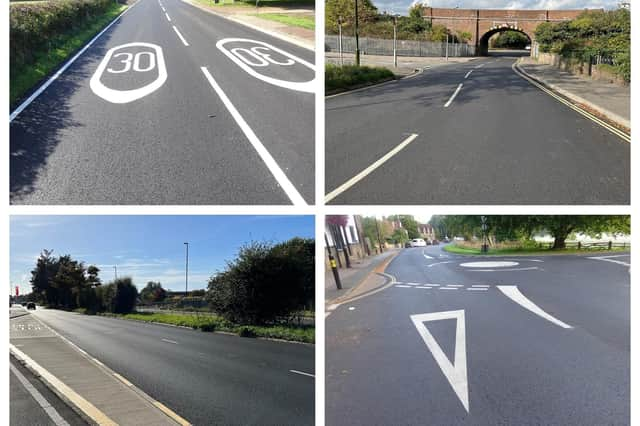Council makes £7.4million worth of road surface improvements in West Sussex


From April to October, 138km of road were either completely resurfaced, had surface dressing or micro-asphalt treatments.
The work included 38 resurfacing schemes, totalling 25km in length, representing a total investment of £3.4million. A warm mix material was used, with approximately 11 per cent less carbon emissions than traditional methods. The new road surfaces are more durable, making them more resilient to potholes, and smoother, too, which lessens road noise.
Advertisement
Hide AdAdvertisement
Hide AdMicro-asphalt treatment was used at 113 sites, with a total of 44km roads treated and representing a £2million investment. This treatment delays the need to do more significant work which would otherwise cause more disruption for residents and road users, the council said. With the existing road surface left in place, reduced working times and no need for disposal of materials, less carbon emissions are produced.
At 46 sites, totalling 69km of road, there were surface dressing treatments, representing an investment of £2million. Surface dressing involves coating the road in bitumen and chippings and utilises the weight of traffic using the road to embed the chippings. It is used as a cost-effective method to prolong the lifespan of suitable roads.
Joy Dennis, cabinet member for highways and transport, said: “We know how important developing a modern infrastructure is to residents and businesses in West Sussex, which is why there are key targets on road condition in our Council Plan : a £7.4million investment in highway improvements in just six months is testament to the hard work of our highways officers and contractors, and shows our commitment to developing that modern infrastructure.
“Potholes are a big source of frustration for all road users, and in the six months from April this year, approximately 22,000 were filled by our Highways teams and contractor. But we are also taking a holistic approach to the condition of our roads, with whole roads and larger sections completely resurfaced to make them more resilient to potholes, and vastly reduce the need for small-scale, disruptive repairs.
“Micro-asphalt and surface dressing methods have also been deployed on suitable roads as cost-effective ways of improving and prolonging their lifespan.”